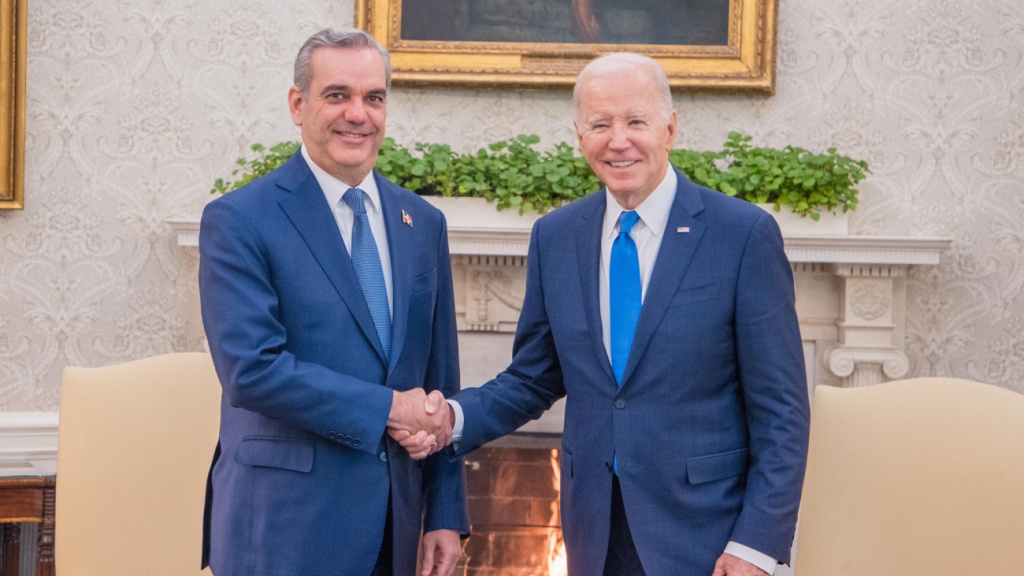President Joe Biden met with his Dominican counterpart, Luis Abinader yesterday at the White House.
During a meeting , the two heads of state “discussed the security situation in Haiti as well as deployment of a Multinational Security Support (MSS) mission in Haiti,” according to a statement released on the White House website, without providing further details on Haiti’s case.
Over a month ago, the United Nations Security Council adopted a resolution authorizing the deployment of a multinational force in Haiti, to be led by Kenya. Since then, there has been no official announcement from the United Nations regarding the arrival date of the first contingents. There is also a legal action in Kenya aimed at challenging the project to lead the mission in Haiti.
Joe Biden and Luis Abinader also discussed the need “to deepen bilateral relations between the United States and the Dominican Republic and discussed a number of shared priorities,” according to the White House statement, adding that “the two leaders discussed how our two countries can continue to closely cooperate to create sustainable economic development for our peoples, including through the the Americas Partnership, and take actions to combat climate change.”
While Joe Biden warmly welcomes Abinader, Haitian leaders have been excluded from discussions about Haiti’s future. At this time, there is no information from the White House regarding a potential meeting with Haiti’s de facto Prime Minister, Ariel Henry.
This meeting comes as the Dominican head of state decides to engage in a standoff with Haiti in protest of the construction of a small canal on the Massacre River in Ouanaminthe.
About a month ago, Luis Abinader ordered the closure of all air, land, and sea borders with Haiti until the construction of the canal is halted. He would later authorize the reopening of the borders, but Haitians do not seem interested in the issue of border reopening.
In Ouanaminthe, in the Northeast department, the barriers remained closed, while the Dominicans reopened theirs every morning. Residents of the Northeast made this decision to demand respect for the rights of Haitians before resuming commercial activities with the Dominican Republic, Haiti’s main economic partner.
Haiti represents the second-largest market for the Dominican Republic, behind the United States.
Since the border closure, the Dominican economy has suffered significant losses, according to several Dominican institutions.
However, the decision also has consequences for Haiti, which depends largely on the Dominican Republic for essential products.







